#Knopf Publishing Group
Explore tagged Tumblr posts
Text
Milestone Monday

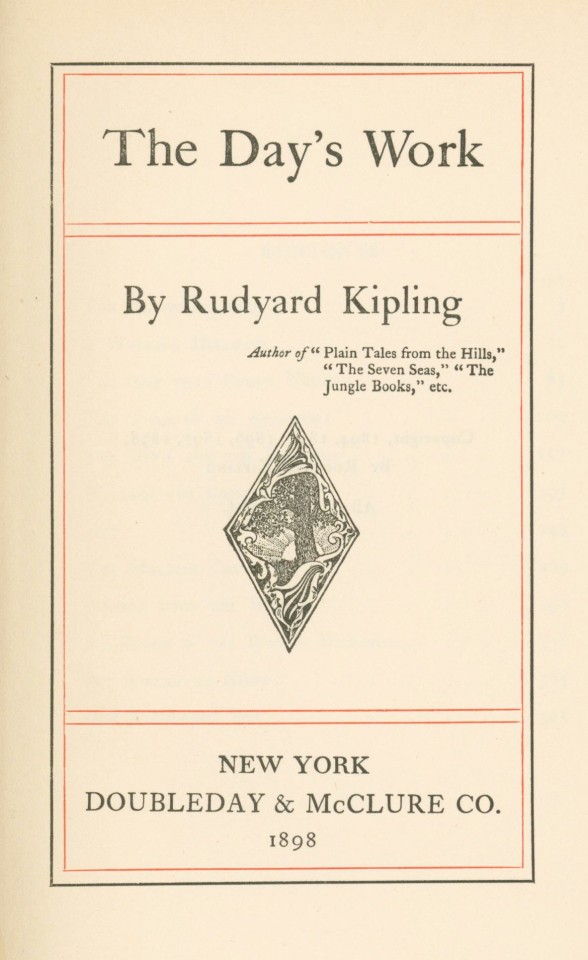


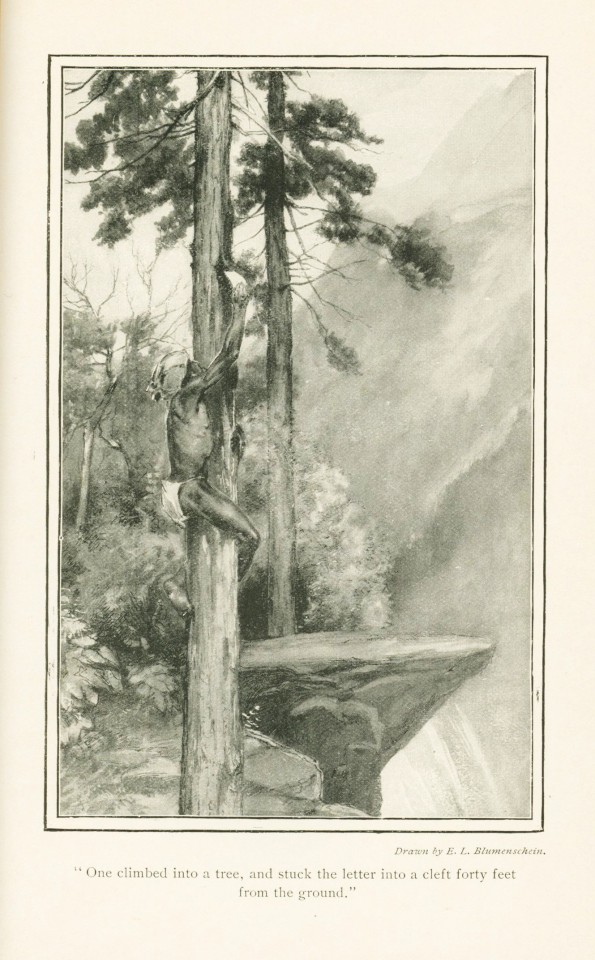

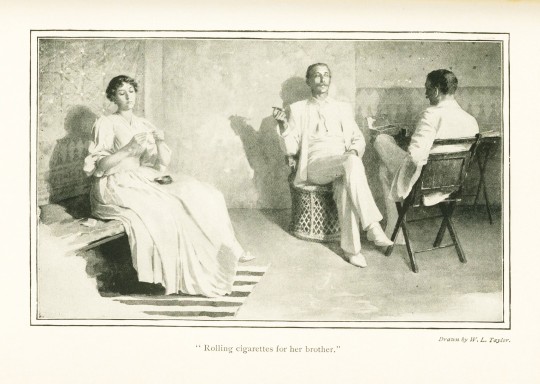


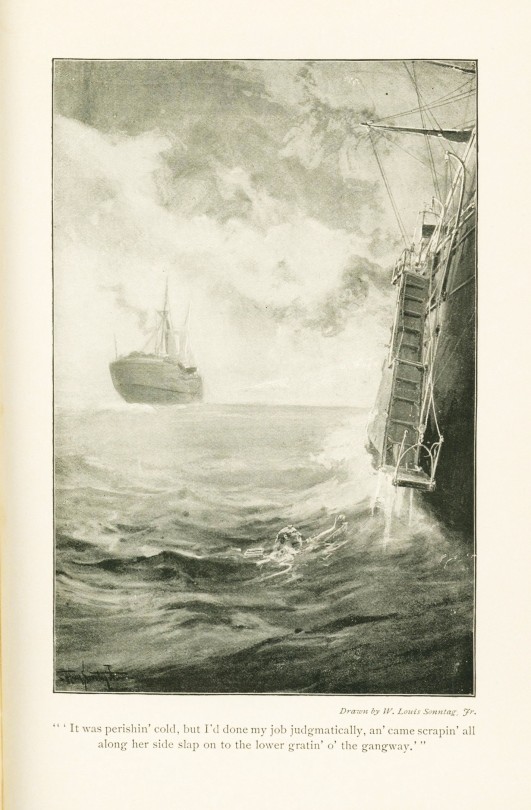
January 8th is the birthday of Frank Nelson Doubleday (1862-1934) who at age ten bought his own printing press to create advertisements and local Brooklyn news circulars and seventy-five years later was known as the co-founder of the largest publisher in the United States. At fifteen years old, Doubleday went to work at Charles Scribner’s Sons, eventually publishing Scribner’s Magazine and heading their subscription book department. After eighteen years, Doubleday left the company and partnered with Samuel Sidney McClure (1857-1949) to open their own publishing venture Doubleday & McClure Company in 1897.
Over the years, Doubleday & McClure Company worked with numerous notable authors and would evolve through a dizzying number of partnerships, acquisitions, and name changes while it grew into an international communications company, eventually settling into a merger with Knopf Publishing Group under Penguin Random House in the early 2000s. In its infancy, still known as Doubleday & McClure, the company found great success with Rudyard Kipling’s (1865-1936) bestseller The Day’s Work.
Published in 1898, The Day’s Work contains thirteen fictional short stories accompanied by illustrations throughout. The stories were written between 1893 and 1896 while Kipling was living in his Bliss Cottage in Vermont and simultaneously working on The Jungle Book. Unlike many of Kipling’s other collections, there are no poems dividing the stories within The Day’s Work. The black and white illustrations within the collection were drawn by four different artists including, William Dodge Stevens (1870-1942), William Louis Sonntag Jr. (1869-1898), Ernest Leonard Blumenschein (1874-1960), and William Ladd Taylor (1854-1926); each leaning into their strengths to support Kipling’s vivid narrative.
Read other Milestone Monday posts here!
– Jenna, Special Collections Graduate Intern
#milestone monday#milestones#frank nelson doubleday#doubleday & mcclure company#charles scribner's sons#samuel sidney mcclure#penguin random house#knopf publishing group#rudyard kipling#the day's work#the jungle book#william dodge stevens#william louis sonntag jr.#ernest leonard blumenschein#william ladd taylor
21 notes
·
View notes
Text
Review: Tomorrow, and Tomorrow, and Tomorrow by Gabrielle Zevin
Author: Gabrielle ZevinPublisher: Knopf Publishing GroupReleased: July 5, 2022Received: Own (BOTM)Warnings: Suicide, workplace shooting, childhood cancer Wow. Wow! Suppose you have ever found yourself wanting to read a love letter to video game history merged with the intricacies of human nature. In that case, you must read Tomorrow, and Tomorrow, and Tomorrow. Written by Gabrielle Zevin, this…

View On WordPress
#Book#Book of the Month#Book Review#Books#Fiction#Fiction Review#Gabrielle Zevin#games#Knopf Publishing Group#Literary#Literature#Review#Tomorrow and Tomorrow and Tomorrow#Tomorrow and Tomorrow and Tomorrow by Gabrielle Zevin#video game
1 note
·
View note
Text
'Sonic Life: A Memoir' by THURSTON MOORE
THURSTON MOORE Sonic Life: A Memoir October 24, 2023 Knopf Doubleday Publishing Group From the founding member of Sonic Youth, a passionate memoir tracing the author’s life and art—from his teen years as a music obsessive in small-town Connecticut, to the formation of his legendary rock group, to thirty years of creation, experimentation, and wonder “Downtown scientists rejoice! For Thurston…
0 notes
Text
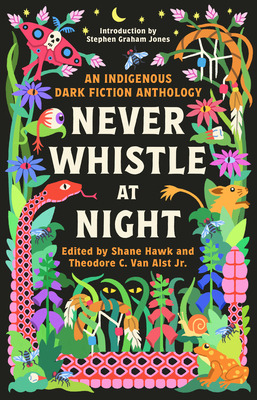
REVIEW
Never Whistle at Night: An Indigenous Dark Fiction Anthology
Compiled and edited by Shane Hawk and Theodore C. Van Last Jr.
This collection of twenty-six short stories provides an interesting and different look at some issues I have never thought about. In reading through reviews of this work I found that some reviewers were able to relate to more of the stories than other readers and some readers were unable to relate much at all. Most went into reading believing the stories would be scary, horror stories, or put them on edge – some did, and some didn’t, in my opinion.
The stories that had the biggest impact on me were:
* KASHTUKA by Mathilda Zeller in which a young woman is pushed by her mother to go with someone she doesn’t want to be with to cook and help with a party. A ghost/scary story is told briefly and seems to allow a Kashtuka to materialize and kill a few people – the twist at the end was a grabber indeed.
* WHITE HILLS by Rebecca Roanhorse looks at what a woman might do to maintain a better quality of life than she was raised in. I hated Marissa’s mother-in-law and husband and really questioned the decision she made at the end of the story.
* SNAKES ARE REBORN IN THE DARK by D.H. Trujillo’s story brought in a bit of magic and touch of horror while talking about respecting and honoring ancient wall/cave paintings.
* BEFORE I GO by Norris Black dealt with grief and loss and made me hope I never run into Mother Night.
* DEAD OWLS by Mona Susan Power is a cold story with ghostly encounters that I hope to never experience myself.
* NAVAJOS DON’T WEAR ELK TEETH by Conley Lyons was dark and disturbing with a main character I wanted to shake and tell to spend time with someone else…someone safer, less abusive, and better for him…that had a darker ending too.
* WINGLESS by Marcie R. Rendon dealt with two boys in a foster care situation no child should find themselves in. I cringe thinking about that story and hoped at the end they both found a brighter future somewhere somehow.
There were a LOT of stories and though I couldn’t relate to all of them, the stories above were the ones that stood out the most to me and will linger longer.
Thank you to NetGalley and Knopf Doubleday Publishing Group for the ARC – this is my honest review.
4 Stars
BLURB
A bold, clever, and sublimely sinister collection that dares to ask the question: “Are you ready to be un-settled?” Featuring stories by: Norris Black • Amber Blaeser-Wardzala • Phoenix Boudreau • Cherie Dimaline • Carson Faust • Kelli Jo Ford • Kate Hart • Shane Hawk • Brandon Hobson • Darcie Little Badger • Conley Lyons • Nick Medina • Tiffany Morris • Tommy Orange • Mona Susan Power • Marcie R. Rendon • Waubgeshig Rice • Rebecca Roanhorse • Andrea L. Rogers • Morgan Talty • D.H. Trujillo • Theodore C. Van Alst Jr. • Richard Van Camp • David Heska Wanbli Weiden • Royce Young Wolf • Mathilda ZellerMany Indigenous people believe that one should never whistle at night. This belief takes many forms: for instance, Native Hawaiians believe it summons the Hukai’po, the spirits of ancient warriors, and Native Mexicans say it calls Lechuza, a witch that can transform into an owl. But what all these legends hold in common is the certainty that whistling at night can cause evil spirits to appear—and even follow you home. These wholly original and shiver-inducing tales introduce readers to ghosts, curses, hauntings, monstrous creatures, complex family legacies, desperate deeds, and chilling acts of revenge. Introduced and contextualized by bestselling author Stephen Graham Jones, these stories are a celebration of Indigenous peoples’ survival and imagination, and a glorious reveling in all the things an ill-advised whistle might summon.
#Shane Hawk#Theodore C. Van Alst Jr.#Stephen Graham Jones#Indigenous Authors#Scary Stories#Horror#Thriller#Multicultural Interest#Anthology#NetGalley#Knopf Doubleday Publishing Group
0 notes
Text

"&" Ampersand - A Literary Companion
Selected stories with the themes of Bastille's upcoming project "&" Ampersand. And, of course, a love letter to my favourite band.
PART 1
Intros & Narrators: Wallace, David Foster. Oblivion: Stories. Little, Brown and Company, 2004./ Nancherla, Aparna. Unreliable Narrator: Me, Myself, and Impostor Syndrome. Penguin Publishing Group, 2023.// Eve & Paradise Lost: Bohannon, Cat. Eve: How the Female Body Drove 200 Million Years of Human Evolution. Knopf Doubleday Publishing Group, 2023. / Milton, John. Paradise Lost. Alma Classics, 2019.// Emily & Her Penthouse In The Sky: Dickinson, Emily. Emily Dickinson’s Poems: As She Preserved Them. Harvard University Press, 2016. /Dickinson, Emily. Emily Dickinson: Letters. Edited by Emily Fragos, Knopf Doubleday Publishing Group, 2011.// Blue Sky & The Painter: Prideaux, Sue. Edvard Munch: Behind the Scream. Yale University Press, 2019. / Knausgaard, Karl Ove. So Much Longing in So Little Space: The Art of Edvard Munch. Random House, 2019.//
PART 2
Leonard & Marianne: Hesthamar, Kari. So Long, Marianne: A Love Story - Includes Rare Material by Leonard Cohen. Ecw Press, 2014./ Cohen, Leonard. Book of Longing. Penguin Books Limited, 2007.// Marie & Polonium: Curie, Eve. Madame Curie. Knopf Doubleday Publishing Group, 2013./Sobel, Dava. The Elements of Marie Curie: How the Glow of Radium Lit a Path for Women in Science. Atlantic Monthly Press, 2024.// Red Wine & Wilde: Wilde, Oscar, et al. De Profundis. Harry N. Abrams, 1998./ Sturgis, Matthew. Oscar: A Life. Head of Zeus, 2018.// Seasons & Narcissus: Ovid. Metamorphoses: A New Verse Translation. Penguin, 2004./ Morales, Helen. Antigone Rising: The Subversive Power of the Ancient Myths. PublicAffairs, 2020.//
PART 3
Drawbridge & The Baroness: Rothschild, Hannah. The Baroness: The Search for Nica, the Rebellious Rothschild. Knopf Doubleday Publishing Group, 2013./ Katz, Judy H. White Awareness: Handbook for Anti-racism Training. University of Oklahoma Press, 1978.// The Soprano & Her Midnight Wonderings: Ardoin, John, and Gerald Fitzgerald. Callas: The Art and the Life. Holt, Rinehart and Winston, 1974./ Abramovic, Marina. 7 Deaths of Maria Callas. Damiani, 2020.// Essie & Paul: Ransby, Barbara. Eslanda: The Large and Unconventional Life of Mrs. Paul Robeson. Haymarket Books, 2022./ Robeson, Paul. Here I Stand. Beacon Press, 1998.//
PART 4
Mademoiselle & The Nunnery Blaze: Gautier, Theophile. Mademoiselle de Maupin. Penguin Classics, n.d./ Gardiner, Kelly. Goddess. HarperCollins, 2014.// Zheng Yi Sao & Questions For Her: Chang-Eppig, Rita. Deep as the Sky, Red as the Sea. Bloomsbury Publishing, 2023./ Borges, Jorge Luis. A Universal History of Infamy. Penguin Books, 1975. // Telegraph Road 1977 & 2024: Kaufman, Bob. Golden Sardine. City Lights Books, 1976./ Wolfe, Tom. The Electric Kool-Aid Acid Test. Pan Macmillan Australia Pty, Limited, 2008.
Original artwork created by Theo Hersey & Dan Smith. Printed letterpress at The Typography Workshop, South London.
163 notes
·
View notes
Text
The Simple Truth
I bought a dollar and a half's worth of small red potatoes, took them home, boiled them in their jackets and ate them for dinner with a little butter and salt. Then I walked through the dried fields on the edge of town. In middle June the light hung on in the dark furrows at my feet, and in the mountain oaks overhead the birds were gathering for the night, the jays and mockers squawking back and forth, the finches still darting into the dusty light. The woman who sold me the potatoes was from Poland; she was someone out of my childhood in a pink spangled sweater and sunglasses praising the perfection of all her fruits and vegetables at the road-side stand and urging me to taste even the pale, raw sweet corn trucked all the way, she swore, from New Jersey. "Eat, eat" she said, "Even if you don't I'll say you did." Some things you know all your life. They are so simple and true they must be said without elegance, meter and rhyme, they must be laid on the table beside the salt shaker, the glass of water, the absence of light gathering in the shadows of picture frames, they must be naked and alone, they must stand for themselves. My friend Henri and I arrived at this together in 1965 before I went away, before he began to kill himself, and the two of us to betray our love. Can you taste what I'm saying? It is onions or potatoes, a pinch of simple salt, the wealth of melting butter, it is obvious, it stays in the back of your throat like a truth you never uttered because the time was always wrong, it stays there for the rest of your life, unspoken, made of that dirt we call earth, the metal we call salt, in a form we have no words for, and you live on it.
— Philip Levine, "The Simple Truth" in "The Simple Truth: Poems" (Knopf Doubleday Publishing Group; September 3, 1996)
14 notes
·
View notes
Text
Book
Wong, A. (2020). Disability Visibility: First-Person Stories from the Twenty-First Century. Knopf Doubleday Publishing Group.

[ID in alt]
This is “Disability Visibility: First-Person Stories from the Twenty-First Century,” published in 2020, and edited by Alice Wong, a disabled activist, writer, editor, and the founder and director of the Disability Visibility Project. A table of contents organizes the various essays into four main parts, and information about the contributors as well as further reading can be found at the end. This book is a collection of essays from all across the array of disabled people, providing a glimpse into the lived reality of all sorts of disabilities. This book is a beautiful way for nondisabled people to learn more about the lived reality of disability, but it is also a heartwarming and provocative display of disability justice for people who already are disabled. If you’re unsure of what a disability justice politic may look like, or are curious about the state of the world for your fellow disabled humans, I would highly recommend this book. I think a baseline foundational level of knowledge on disability studies may help, but this book can be enjoyed by anyone.
#disability studies#disability justice#book#disability visibility#first-person stories from the 21st century#Alice Wong
4 notes
·
View notes
Note
Hi Jenn - I was wondering whether there is any discernible difference between being published by a big 5 imprint that has the same name as the overall house (ex. the Random House imprint itself), vs an imprint under the same house but with a different name? Are you more likely to be a lead title and get more marketing support if you are being published by the former? Is there more implied prestige? Thank you <3
Short answer: no.
But since you probably want a longer answer:
In case you don't know it, most publishers, particularly large and VERY large publishers, are broken up into "groups" and "imprints" -- that is, different brands all under the umbrella publisher. This goes for ALL the big publishers, but I'll focus on PRH since that was your example:
Penguin Random House is broken up into multiple "groups" and within those groups are multiple imprints. << (that link shows all the groups and their imprints!)****
The two groups you mostly would be familiar with on the kids side are Penguin Young Readers Group and Random House Children's Books. But WITHIN those, on the Penguin side, there is Viking, Dutton, Philomel, Putnam, Kokila, Penguin Workshop, Rocky Pond, etc etc. And on the RH side, there's Random House Books for Young Readers, Delacorte, Knopf, Crown, Labyrinth Road, Make Me a World, etc etc.
They are ALL part of PRH. There is no imprint just called "Penguin" on the kid's side -- you have to go to one of the imprints. There IS an imprint called RH BYR -- but there is no special perk or prestige to being published by that imprint vs Knopf, or whatever other RH imprint. Individual imprints may be different sizes or have different specialities, missions, or "vibes" -- but they are all PRH, none of them are particularly "better" or "worse". (They might be better or worse for YOUR book, but they aren't better or worse to the general public or anything like that!)
For example: Rocky Pond is pretty much one main editor, and it has a specific mission: Kids books for all ages that focus on mental health and social/emotional learning. Kokila has several editors, and a specific mission: Kids books for all ages that center marginalized voices/experiences. Rise has two editors, and a specific mission: "To engage, empower, and evolve the youngest readers (ages 0-5) with authentic, relevant, and elegant books." -- you get the picture, right? Different vibes! So if YOUR book was appropriate for one of those imprints, maybe that's the best imprint for it. You'd still be "published by Penguin Random House" -- you'd be a "Penguin author" -- you'd just be at one of the smaller imprints that specializes in that kind of book. (And in the case of Penguin, since there literally IS NO IMPRINT just called "Penguin" -- well, you are gonna be at a differently named imprint!)
(The RH side is more difficult to discern from that link because the RH imprints don't have their "mission statements" listed like that, so I'll just tell you -- Delacorte is mostly highly commercial YA & MG fare, Knopf is books for all ages that are more "literary", RH BYR tends to be commercial middle grade, chapter books, series, etc, RH Graphic = Graphic novels, Joy Revolution is basically diverse romances by and about BIPOC characters, Labyrinth Road I'd think of for MG adventure/fantasy series, etc. There's crossover, of course, but essentially: Different vibes for different kinds of books! If your book is a commercial chapter book series, it's probably gonna be RH BYR -- if it is a lyrical and literary picture book, it probably WON'T be -- and that's fine!)
--
**** ETA: If you want to know more, this info is out there and available online for all the publishers, it's not secret information. I always suggest, when you read a book, make a note of the publisher/imprint, because you will start to see patterns -- that's the best way to get the "vibe" of a given imprint, and can help you find comps, figure out where YOUR book belongs, etc etc.
7 notes
·
View notes
Text
Alright :/
What do I need to do?
Let's talk negatives since I tend to think in negatives.
I need to not end up in the mental hospital again.
I need to not self sabotage.
I need to not doomscroll.
I need to not retreat into oblivion.
I need to disarm my alarm system. Actually, yeah, that. All of my negatives are my alarm system shrieking and me trying to respond to it.
Number two (though they aren't really in much of any order) on my top recommended reading list is Bird by Bird by Anne Lamott. It's a great book. I think not merely for creative writing but also just has good life advice all around.
The titular advice, take the undoable, in the story an assignment to bird watch over an entire summer, procrastinated to the very end when it is essentially impossible, and just concentrate on doing what you can do, bird by bird, one mechanical step at a time. is perfect for these sorts of moments. Dealing with everything is not possible right now. It probably never is. So, ground. Look at what you need NOW. One step. That's it. Just one. One Bird on the list and don't worry about the rest until you've done that bird. All the other birds are a problem for future you. All you have to do is take ONE bird off future you's plate. Give the rest of the tasks to them, later.
For me, though, the best advice in it is her discussion of Radio Station K-FKD (That's pronounced by the letters in polite company and K-fucked the rest of the time).
If you are not careful, station KFKD will play in your head twenty-four hours a day, nonstop, in stereo. Out of the right speaker in your inner ear will come the endless stream of self-aggrandizement, the recitation of one’s specialness, of how much more open and gifted and brilliant and knowing and misunderstood and humble one is. Out of the left speaker will be the rap songs of self-loathing, the lists of all the things one doesn’t do well, of all the mistakes one has made today and over an entire lifetime, the doubt, the assertion that everything that one touches turns to shit, that one doesn’t do relationships well, that one is in every way a fraud, incapable of selfless love, that one has no talent or insight, and on and on and on. You might as well have heavy-metal music piped in through headphones while you’re trying to get your work done. You have to get things quiet in your head so you can hear your characters and let them guide your story. The best way to get quiet, other than the combination of extensive therapy, Prozac, and a lobotomy, is first to notice that the station is on. KFKD is on every single morning when I sit down at my desk. So I sit for a moment and then say a small prayer—please help me get out of the way so I can write what wants to be written. Sometimes ritual quiets the racket. Try it. Any number of things may work for you—an altar, for instance, or votive candles, sage smudges, small-animal sacrifices, especially now that the Supreme Court has legalized them. (I cut out the headline the day this news came out and taped it above the kitty’s water dish.) Rituals are a good signal to your unconscious that it is time to kick in. You might also consider trying to breathe. This is not something that I remember to do very often, and I do not normally like to hang around people who talk about slow conscious breathing; I start to worry that a nice long discussion of aromatherapy is right around the corner. But these slow conscious breathers are on to something, because if you try to follow your breath for a while, it will ground you in relative silence.
Lamott, Anne. Bird by Bird: Some Instructions on Writing and Life (pp. 108-109). Knopf Doubleday Publishing Group. Kindle Edition.
This is definitely not merely for writing.
K-FKD plays about everything.
How awful the world is. How superior WE are as opposed to THEM. Etc. How lethal and cruel and fascist certain very powerful groups are and how they are coming for us. Etc. Politics. Culture wars. Illness. Poverty. ALL OF IT.
Note that neither Lamott nor I are stating that Radio Station K-FKD is lying to you. Your brain is down right amazing at finding facts to support the noise it blares at you. In one of the last conversations I had with my cousin before he died, when he was extremely aware that this particular vacation was going to be his last, he talked about simply clearing his plate. Yes, he was going to die. Soon. Everyone knew it. He had had lots of plans and things to do and... and... and.... And simply dealing with all that, just the thoughts of it, were too much. He had to simply clear his plate. He only had time and energy to live. That was it. So he was simply there. He was happy to talk to his family. He was happy he was at the beach. He was happy the food was good. He was happy he had shade to keep him cool. He was happy the drugs were managing his pain pretty well at the moment. He was happy that it wasn't a surprise and he got to say goodbye - so that's what he did and it is all of what he did. He had emptied his plate to the bare essentials. Here, now, this is what I want, everything else is for later. That he was going to die was a plain and simple fact. It was true. He still had to turn K-FKD off to simply live while he could. Because letting it thunder in your head, non-stop, forever isn't living.
On the other hand, one of the things that definitely came up was that he was able to handle his death as gracefully as he did because it wasn't his first cancer bout. He had faced death before. He had dealt with all that it brings. Including mourning his health, vitality, and future. You can't turn K-FKD off by refusing to acknowledge the truth or saying that facts are lies. That actually turns the volume up. Sometimes the very thing you need to do to get the radio to turn down is to tune in and focus on it. These are the facts. This is true. This SUCKS. Let it play in both ears and just feel it. Let the brain do its work and mourn the horrors that are overwhelming you. Treat it like a song stuck in your head. You want it out, then you have to turn it on and let it play to the bitter end, uninterrupted. It's the full attention to the full run of it that lets your brain move on in the moment. So, when shit happens, if you want K-FKD to stop torturing you, you do have to mourn and do all that sucky psycho-bullshit-healing-feeling-pain. You have to tune into that track. Otherwise K-FKD will force you to listen to snippets on its own schedule FOREVER. Or at least until you do what is needed. And, unfortunately, the longer you let it play the K-FKD way, the harder it is to get to stop playing because our brains get used to the soundtrack. It grooves into the brain like a constant trickle of water carving out a canyon. It is counterintuitive but true, that it can be much better simply to let the land flood. It does a lot of damage but actually much less in the long run than the steady drip, drip, drip of K-FKD.
On the gripping hand, adding water, insult to injury, bathing in it and wallowing is iffy. It's good if it is tuning in and letting it flood so it can pass through your system more effectively. It's bad if it is a way to simply keep adding to the flood so it's steady waves rather than drips. That's how to wear away a continent rather than merely gouge a canyon.
So, for myself, I think my wisdom is telling me to disengage with politics right now. Consuming more politics is me trying to put out fire with gasoline. I am terrified and in mourning. I'm not terribly far out of my closet and am pondering how to stuff myself back in. I don't think that's healthy. Neither do I think it is healthy or safe to start throwing molotov's. That is why I went into the mental hospital the last time. I do not want to be that version of myself. Everyone else is going to have to make their own calculations but for my health and safety, I'm going to work on being as anti-political as I can on here. Acknowledging that it is probably going to be very difficult. I'll probably screw it up. But that's a problem for later me. Not now me. I'm going to try and trust them to have my back and work through their shit, then, the same way I'm trying to work through mine.
Then it is on to unfucking my life. Never fun. But I am now 7 days behind on NaNoWriMo. I've been in writing burnout for something longer than a decade. I NEED to write. I NEED to catch up. I NEED to reassert that portion of my identity before the failure to engage with it kills me. So I'm going to try to focus there for now. I'm going to try and tune into that with the energy I have been using for politics.
I called myself empty MANUSCRIPT for a reason. So I think it is time to empty my plate, turn off the radio, and focus on there for now. That's my first bird.
That's it.
I'll deal with whatever NEEDS to happen next after I get this cleared off my plate.
And I hope everyone else finds/gets what they need to survive the next few days, too, even if I don't say so elsewhere or elsewise.
4 notes
·
View notes
Text
April 2024 Diverse Reads

April 2024 Diverse Reads:
•”All We Were Promised” by Ashton Lattimore, April 2, Ballantine Books, Historical/Saga/African American & Black/Women
•”Real Americans” by Rachel Khong, April 30, Knopf Publishing Group, Contemporary/Family Life/Cultural Heritage/Asian American
•”The Cemetery of Untold Stories” by Julia Alvarez l, April 2, Algonquin Books, Literary/Fantasy/Magical Realism/Cultural Heritage/Hispanic & Latino/World Literature/Caribbean & West Indies
•”The Stone Home” by Crystal Hana Kim, April 2, William Morrow & Company, Literary/Historical/Saga/Psychological/World Literature/Korea/Multiple Timelines
•”Indian Burial Ground” by Nick Medina, April 16, Berkley Books, April 2, Horror/Thriller/Supernatural/Cultural Heritage/Native American & Aboriginal
•”A Magical Girl Retires” by Park Seolyeon, translated by Anton Hur, April 30, Harpervia, Contemporary/Fantasy/Feminist/World Literature/Korea
•”Bite by Bite: Nourishments and Jamborees” by
Aimee Nezhukumatathil, April 30, Ecco Press, Essays/Short Essays/Essay Collection/Memoir in Essay
•”Disability Intimacy: Essays on Love, Care, and Desire” by Alice Wong, April 30, Vintage, Essays/Short Essays/Essay Collection/People with Disabilities/Love & Romance/Human Sexuality/Social Science
•”The Backyard Bird Chronicles” by Amy Tan, April 23, Knopf Publishing Group, Personal Memoir/Personal Memoir in Journal/Animals - Birds/Motivational & Inspirational/Illustration
•”Knife: Meditations After an Attempted Murder” by Salman Rushdie, April 16, Random House, Personal Memoir/Literary Figure/Survival/Cultural, Ethnic & Regional/Discrimination & Race Relations/Social Justice
•”Just for the Summer” by Abby Jimenez, April 02, Forever, Contemporary/Romance/Romantic Comedy/Women/Small Town & Rural
•”How to End a Love Story” by Yulin Kuang, April 09, Avon Books, Contemporary/Romance/Romantic Comedy/Multicultural & Interracial/Diversity & Multicultural/Cultural Heritage Asian American/Workplace/Family Life/Siblings/Women
•”When I Think of You” by Myah Arie, April 16, Berkley Books, Contemporary/Romance/Romantic Comedy/Women/Hollywood/Workplace/Diversity & Multicultural
•”Canto Contigo” by Jonny Garza Villa, April 09, Wednesday Books, Contemporary/Romance/Culwtural Heritage/Hispanic & Latino/LGBTQ
•”Table for One: Stories” by Ko-Eun Yun, translated by Lizzie Buehler, April 09, Columbia University Press, Literary/Short Stories/Women/World Literature/Korea
•”One of Us Knows” by Alyssa Cole, April 16, William Morrow & Company, Thriller/Suspense/Psychological/Mystery & Detective/Women Sleuths/Women
•”Ocean's Godori” by Elaine U. Cho, April 23, Zando - Hillman Grad Books, Science Fiction/Space Opera/Romance/Asian American/LGBTQ
•”Kill Her Twice” by Stacey Lee, April 23, G.P. Putnam's Sons Books for Young Readers, YA/Historical/20th Century/Mysteries & Detective/Women Sleuths/Women/Culwtural Heritage/Asian American
•”You Know What You Did” by K. T. Nguyen, April 16, Dutton, Thriller/Psychological/Culwtural Heritage/Asian American
•”The Spoiled Heart” by Sunjeev Sahota, April 16, Viking, Contemporary/Political/Family Life/World Literature/England
#books#bookworm#bookish#bibliophile#book lover#bookaddict#reading#book#booklr#bookaholic#books and reading#bookblr#reading list#to read#reader#read diverse books#diverse authors#diverse books#diverse reads
3 notes
·
View notes
Text
The State of the ARCs: What I Gotta Read
And what I'm so excited to read, of course, but you know. Sometimes you have to keep yourself honest, even when you're excited!
Pub Date: 1/21/25
The Legend of Menaka by Kritika H. Rhao. Fantasy romance. Harper Voyager (Avon Harper Voyager). Currently reading, and it's quite good so far!
Earl Crush by Alexandra Vasti. Historical romance. St. Martin's Griffin (St. Martin's Press).
Boudicca by P.C. Cast. Fantasy (romance?). William Morrow.
Those Fatal Flowers by Shannon Ives. Historical fantasy romance. Dell (Random House Publishing Group - Ballantine).
Pub Date: 2/4/25.
A Tropical Rebel Gets the Duke by Adriana Herrera. Historical romance. Canary Street Press (Harlequin Trade Publishing).
Kingdom of Claw by Demi Winters. Fantasy romance. Delacorte Press (Random House Publishing Group - Ballantine).
Pub Date: 2/18/25.
Wooing the Witch Queen by Stephanie Burgis. Fantasy romance. Bramble (Tor Publishing Group).
Hungerstone by Kat Dunn. Historical paranormal romance. Zando.
A Cure for the Homesick by Laura Brooke Robson. Historical fantasy romance? MIRA (Harlequin Trade Publishing).
Pub Date: 2/25/25.
The Prince's Heart by Ben Chalfin. Fantasy romance. Rising Action (Rising Action Publishing).
A Circle of Uncommon Witches by Paige Crutcher. Paranormal romance. St. Martin's Griffin (St. Martin's Press).
Pub Date: 3/4/2025.
A Harvest of Hearts by Andrea Eames. Fantasy romance. Erewhon Books (Kensington Publishing).
Pub Date: 3/11/25.
A Gentleman's Gentleman by TJ Alexander. Historical romance. Vintage (Knopf, Pantheon, Vintage, and Anchor).
Pub Date: 3/25/25.
Exquisite Ruin by AdriAnne May. Fantasy romance. Gallery Books.
Pub Date: 4/1/25.
Crash Landing by Annie McQuaid. Contemporary romance. Avon (Avon and Harper Voyager).
Pub Date: 4/8/25.
The Gods Time Forgot by Kelsie Sheridan Gonzalez. Fantasy romance. Alcove Press.
Pub Date: 4/29/25.
My Best Friend's Honeymoon by Meryl Wilsner. Contemporary romance. St. Martin's Griffin (St. Martin's Press).
When the Tides Held the Moon by Venessa Vida Kelley. Historical fantasy romance. Erewhon Books (Kensington Publishing).
Pub Date: 5/6/25.
Silver Elite by Dani Francis. Dystopian romance. Del Rey (Random House Worlds).
Pub Date: 5/27/25.
A Fate Forged in Fire by Hazel McBride. Fantasy romance. Delacorte Press (Random House Publishing Group - Ballantine).
Pub Date: 6/10/25.
If I Told You, I'd Have to Kiss You by Mae Marvel. Contemporary romance. St. Martin's Griffin (St. Martin's Press).
Pub Date: 6/24/25.
Cruel Summer by Maisey Yates. Contemporary romance(?). Canary Street Press (Harlequin Trade Publishing).
Pub Date: 7/1/25.
This Much is True by Vivienne Lorret. Historical romance. Avon (Avon Harper Voyager).
Of these, as far as I'm AWARE, 7 are queer romances, whereas the rest are m/f.
4 notes
·
View notes
Photo
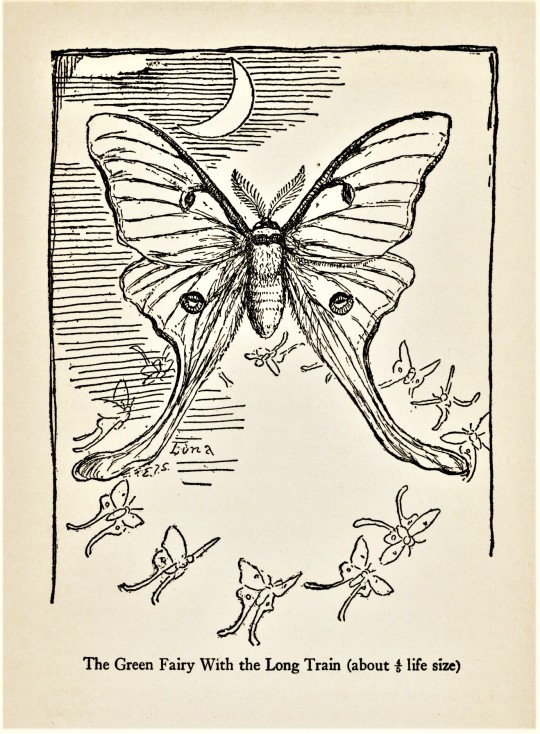
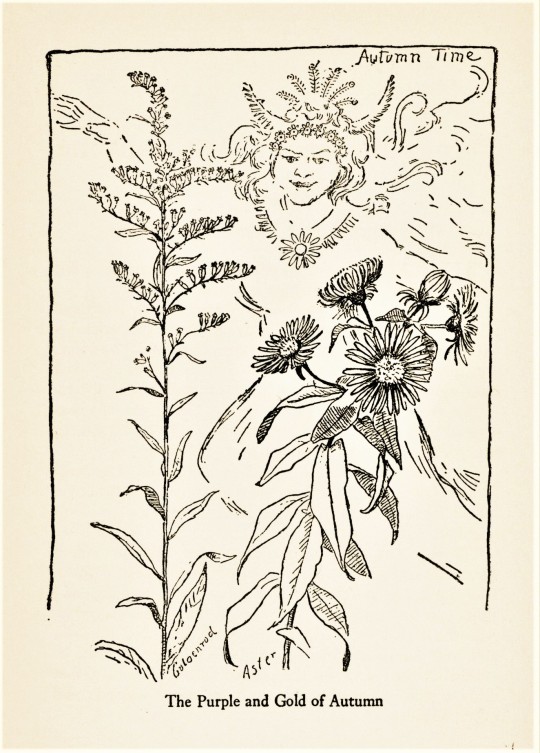
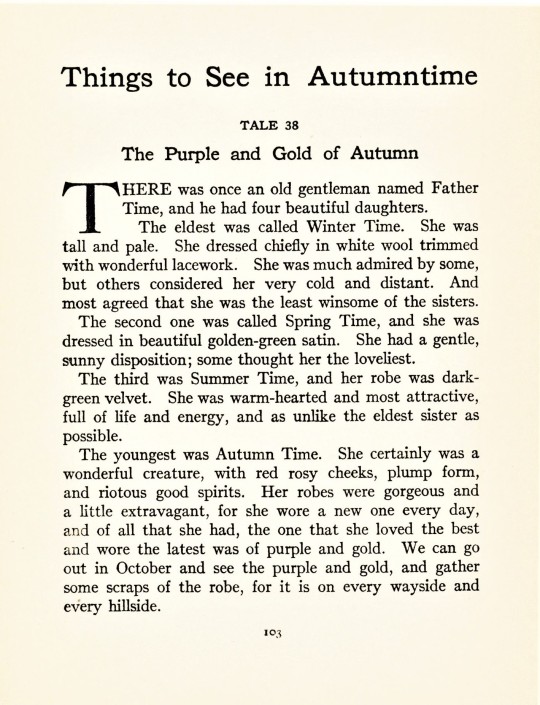

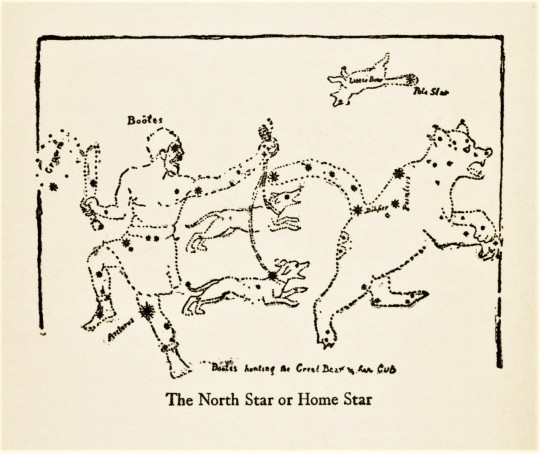
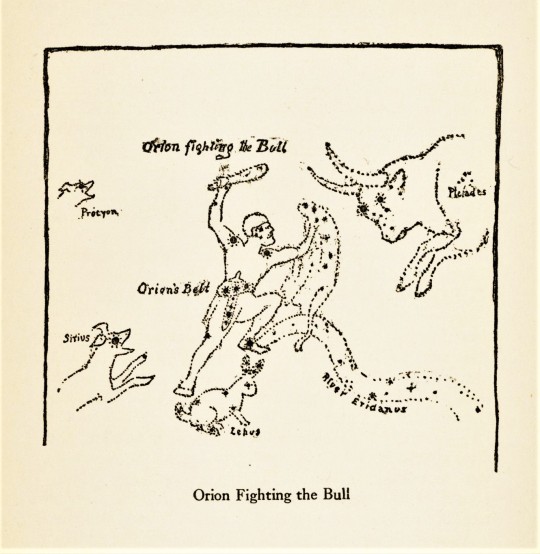
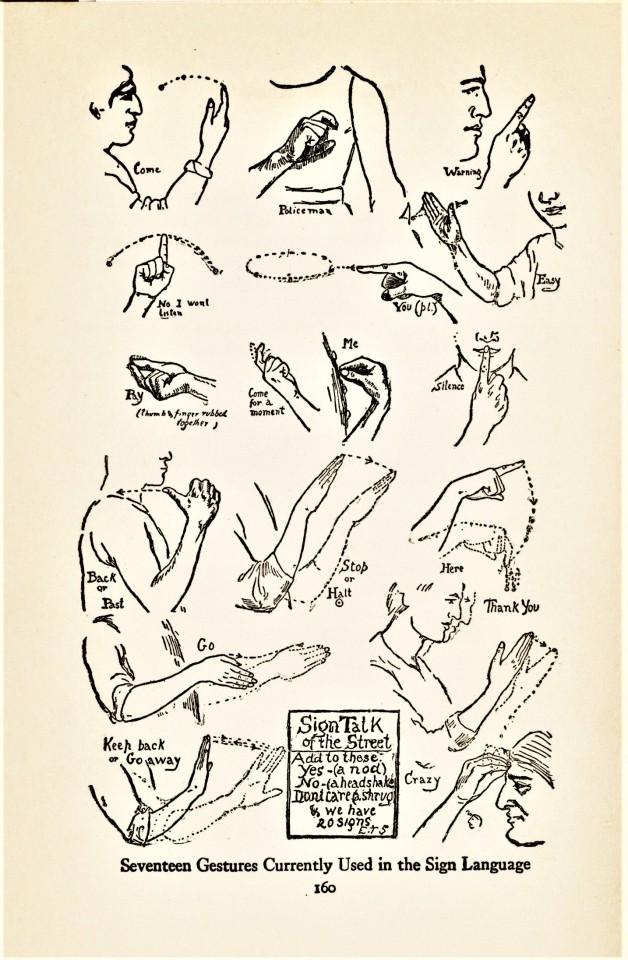
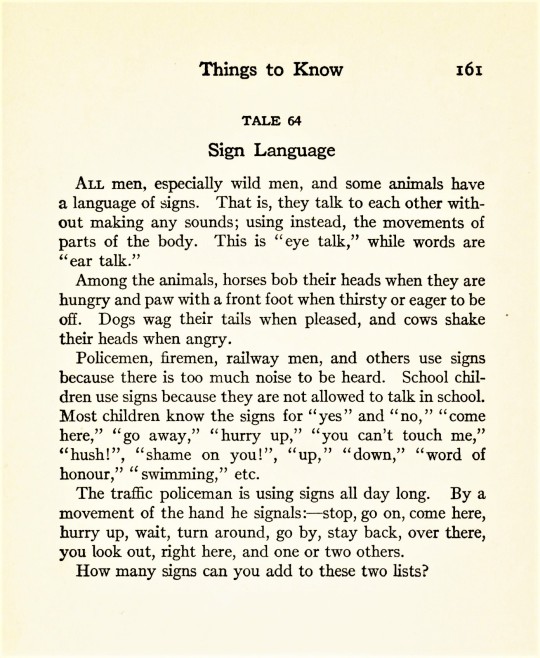
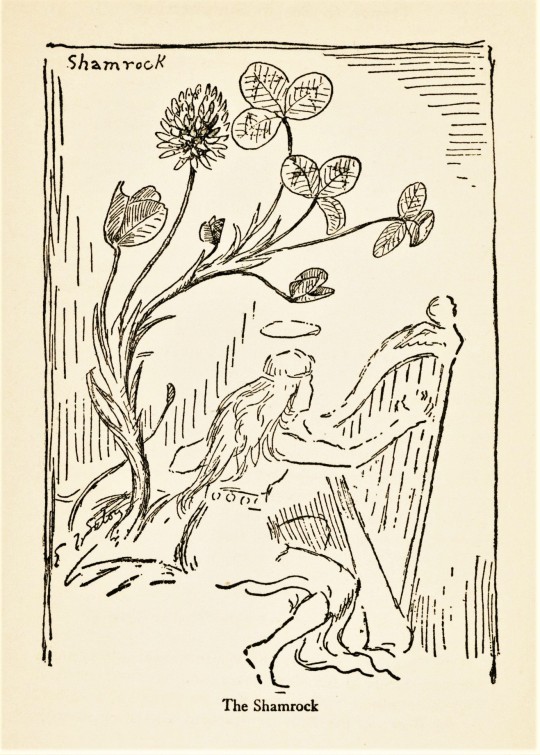
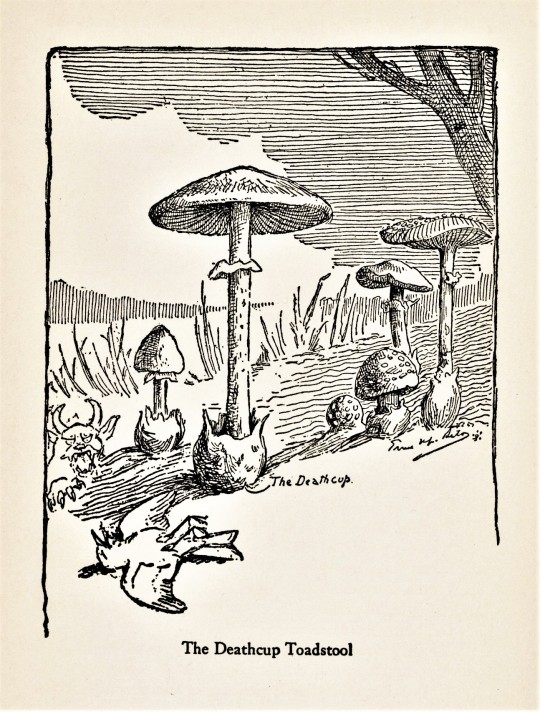
Staff Pick of the Week
Ernest Thompson Seton (1860-1846) was a prolific Canadian-American author and wildlife artist, who was also one of the founding pioneers of the Boy Scouts of America. Woodland Tales is a reflection of his interests in the natural world, consisting of short stories about animals and the seasons. He split the book up into parts that he labeled as “Things to see in Springtime” or “Things to see in Wintertime,” with matching short stories. Throughout the book you can find many of his illustrations.
I was shelving something else when I found this book on accident, and I’m glad I opened it. The illustrations and stories vary between feeling like it’s something out of a fairy tale to something more scientific, such as a field guide. As a nature-lover myself, this book was a great find!
This particular edition is the 1922 printing of the book, originally published in 1921 by Doubleday, Page & Company In Garden City, N.Y. Another interesting thing about the book is the curious details I learned about Doubleday when researching it. For instance, during the relocation of the firm to Garden City in 1910, some of their operations were done out of a train station! The founder Frank Nelson Doubleday either ghost wrote or edited John D. Rockefeller’s autobiography, and he was also friends with Mark Twain and Rudyard Kipling. Another interesting thing to note is that one of the company’s partners, Walter Hines Page, was also the ambassador to Great Britain during World War I. The Doubleday company and later its then president and CEO Nelson Doubleday, Jr., the grandson of the founder, owned the New York Mets baseball team from 1980-2002. What quirky little things to learn!
Beginning in the late 1980s, Doubleday began a series of mergers, becoming a a division of Random House in 1998 and merging with Knopf Publishing Group in 2009, which today is part of Penguin Random House. I ended up learning more about the publisher than about the author or title, but that’s the rabbit hole one goes down sometimes when selecting a staff pick!
View more posts with illustrations by Ernest Thompson Seton.
View more Staff Picks!
-- Sarah W,. Special Collections Undergraduate Intern
#Staff Pick of the Week#staff picks#Sarah W.#Ernest Thompson Seton#Woodland Tales#Doubleday Page & Company#Doubleday#Frank Nelson Doubleday#Walter Hines Page#Nelson Doubleday Jr.#publishing history
100 notes
·
View notes
Photo
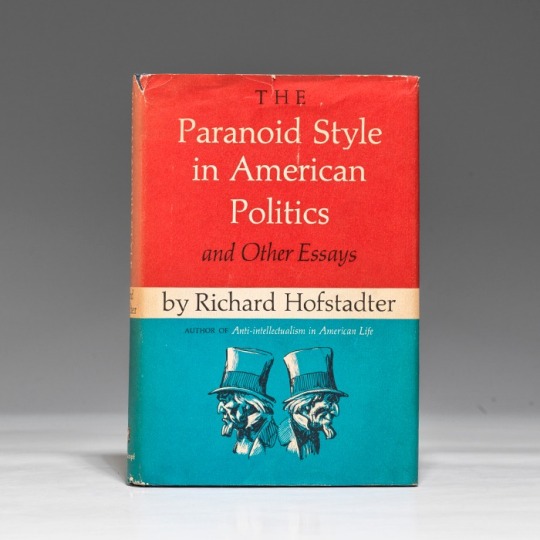
I was asked about what grievances M.A.G.A. has and I thought it over. My response follows.
I see three common characteristics in their complaints. 1) They involve a checklist of specific groups, foreign and domestic, they fear and loathe, such people being mostly outside the cultural limits of their tribe. 2) These groups are all "up to something", conspiring to take something away or threaten their security. 3) And such threats are directed by certain people behind the scenes who they've been warned about in their social networks---Hillary, Soros, etc. What makes this all work politically is that it's a cafeteria of madness, with each paranoid person getting what they want out of it all.
And it's all ambiguous enough for each person to read into the conspiracies and the nonspecific "elites" and "globalists" something that is swirling in their confused minds. I think all this explains why there's been a renewed interest in Richard Hofstadter's "The Paranoid Style in American Politics". RH blended scholarship from other academic disciplines with political and social history to give us a new perspective on movements. He got criticized for it, for straying into speculation, I suppose, but he opened eyes.
This was the essay alone, in 1964, before it was published by Knopf along with some others in 1965. https://harpers.org/.../the-paranoid-style-in-american.../
[Thanks to my friend Steven Jennings]
* * * *
“The Double Sufferer”
The paranoid style is not confined to our own country and time; it is an international phenomenon. Studying the millennial sects of Europe from the eleventh to the sixteenth century, Norman Cohn believed he found a persistent psychic complex that corresponds broadly with what I have been considering—a style made up of certain preoccupations and fantasies: “the megalomaniac view of oneself as the Elect, wholly good, abominably persecuted, yet assured of ultimate triumph; the attribution of gigantic and demonic powers to the adversary; the refusal to accept the ineluctable limitations and imperfections of human existence, such as transience, dissention, conflict, fallibility whether intellectual or moral; the obsession with inerrable prophecies . . . systematized misinterpretations, always gross and often grotesque.”
This glimpse across a long span of time emboldens me to make the conjecture—it is no more than that—that a mentality disposed to see the world in this way may be a persistent psychic phenomenon, more or less constantly affecting a modest minority of the population. But certain religious traditions, certain social structures and national inheritances, certain historical catastrophes or frustrations may be conducive to the release of such psychic energies, and to situations in which they can more readily be built into mass movements or political parties.
In American experience ethnic and religious conflict have plainly been a major focus for militant and suspicious minds of this sort, but class conflicts also can mobilize such energies. Perhaps the central situation conducive to the diffusion of the paranoid tendency is a confrontation of opposed interests which are (or are felt to be) totally irreconcilable, and thus by nature not susceptible to the normal political processes of bargain and compromise. The situation becomes worse when the representatives of a particular social interest—perhaps because of the very unrealistic and unrealizable nature of its demands—are shut out of the political process. Having no access to political bargaining or the making of decisions, they find their original conception that the world of power is sinister and malicious fully confirmed. They see only the consequences of power—and this through distorting lenses—and have no chance to observe its actual machinery.
A distinguished historian has said that one of the most valuable things about history is that it teaches us how things do not happen. It is precisely this kind of awareness that the paranoid fails to develop. He has a special resistance of his own, of course, to developing such awareness, but circumstances often deprive him of exposure to events that might enlighten him—and in any case he resists enlightenment.
We are all sufferers from history, but the paranoid is a double sufferer, since he is afflicted not only by the real world, with the rest of us, but by his fantasies as well.
[Richard Hofstadter :: The Paranoid Style in American Politics]
#Richard Hofstadter#political#Steven Jennings#The Paranoid Style In American Politics#Harpers Magazine#history
8 notes
·
View notes
Text
The National Book Award finalists have been announced.

2023 Longlist for the National Book Award for Fiction:
Nana Kwame Adjei-Brenyah, Chain-Gang All-Stars Pantheon Books / Penguin Random House
Aaliyah Bilal, Temple Folk Simon & Schuster
Eliot Duncan, Ponyboy W. W. Norton & Company
Paul Harding, This Other Eden W. W. Norton & Company
Tania James, Loot Knopf / Penguin Random House
Jayne Anne Phillips, Night Watch Knopf / Penguin Random House
Mona Susan Power, A Council of Dolls Mariner Books / HarperCollins Publishers
Hanna Pylväinen, The End of Drum-Time Henry Holt and Company / Macmillan Publishers
Justin Torres, Blackouts Farrar, Straus and Giroux / Macmillan Publishers
LaToya Watkins, Holler, Child Tiny Reparations Books / Penguin Random House
2023 Longlist for the National Book Award for Nonfiction:
Ned Blackhawk, The Rediscovery of America: Native Peoples and the Unmaking of U.S. History Yale University Press
Jonathan Eig, King: A Life Farrar, Straus and Giroux / Macmillan Publishers
Viet Thanh Nguyen, A Man of Two Faces: A Memoir, A History, A Memorial Grove Press / Grove Atlantic
Prudence Peiffer, The Slip: The New York City Street That Changed American Art Forever Harper / HarperCollins Publishers
Donovan X. Ramsey, When Crack Was King: A People’s History of a Misunderstood Era One World / Penguin Random House
Cristina Rivera Garza, Liliana’s Invincible Summer: A Sister’s Search for Justice Hogarth / Penguin Random House
Christina Sharpe, Ordinary Notes Farrar, Straus and Giroux / Macmillan Publishers
Raja Shehadeh, We Could Have Been Friends, My Father and I: A Palestinian Memoir Other Press
John Vaillant, Fire Weather: A True Story from a Hotter World Knopf / Penguin Random House
Kidada E. Williams, I Saw Death Coming: A History of Terror and Survival in the War Against Reconstruction Bloomsbury Publishing
2023 Longlist for the National Book Award for Poetry:
John Lee Clark, How to Communicate W. W. Norton & Company
Oliver de la Paz, The Diaspora Sonnets Liveright / W. W. Norton & Company
Annelyse Gelman, Vexations University of Chicago Press
José Olivarez, Promises of Gold Henry Holt and Company / Macmillan Publishers
Craig Santos Perez, from unincorporated territory [åmot] Omnidawn Publishing
Paisley Rekdal, West: A Translation Copper Canyon Press
Brandon Som, Tripas Georgia Review Books / University of Georgia Press
Charif Shanahan, Trace Evidence Tin House Books
Evie Shockley, suddenly we Wesleyan University Press Monica Youn, From From Graywolf Press
2023 Longlist for the National Book Award for Translated Literature:
Juan Cárdenas, The Devil of the Provinces Translated from the Spanish by Lizzie Davis Coffee House Press
Bora Chung, Cursed Bunny Translated from the Korean by Anton Hur Algonquin Books / Hachette Book Group
David Diop, Beyond the Door of No Return Translated from the French by Sam Taylor Farrar, Straus and Giroux / Macmillan Publishers
Jenny Erpenbeck, Kairos Translated from the German by Michael Hofmann New Directions Publishing
Stênio Gardel, The Words That Remain Translated from the Portuguese by Bruna Dantas Lobato New Vessel Press
Khaled Khalifa, No One Prayed Over Their Graves Translated from the Arabic by Leri Price Farrar, Straus and Giroux / Macmillan Publishers
Fernanda Melchor, This Is Not Miami Translated from the Spanish by Sophie Hughes New Directions Publishing
Pilar Quintana, Abyss Translated from the Spanish by Lisa Dillman World Editions
Astrid Roemer, On a Woman’s Madness Translated from the Dutch by Lucy Scott Two Lines Press
Mohamed Mbougar Sarr, The Most Secret Memory of Men Translated from the French by Lara Vergnaud Other Press
2023 Longlist for the National Book Award for Young People’s Literature:
Erin Bow, Simon Sort of Says Disney-Hyperion Books / Disney Publishing Worldwide
Kenneth M. Cadow, Gather Candlewick Press
Alyson Derrick, Forget Me Not Simon & Schuster Books for Young Readers / Simon & Schuster
Huda Fahmy, Huda F Cares? Dial Books for Young Readers / Penguin Random House
Vashti Harrison, Big Little, Brown Books for Young Readers / Hachette Book Group
Katherine Marsh, The Lost Year: A Survival Story of the Ukrainian Famine Roaring Brook Press / Macmillan Publishers
Dan Nott, Hidden Systems: Water, Electricity, the Internet, and the Secrets Behind the Systems We Use Every Day Random House Graphic / Penguin Random House
Dan Santat, A First Time for Everything First Second / Macmillan Publishers
Betty C. Tang, Parachute Kids Graphix / Scholastic, Inc.
Yohuru Williams and Michael G. Long, More Than a Dream: The Radical March on Washington for Jobs and Freedom Farrar, Straus and Giroux Books for Young Readers / Macmillan Publishers
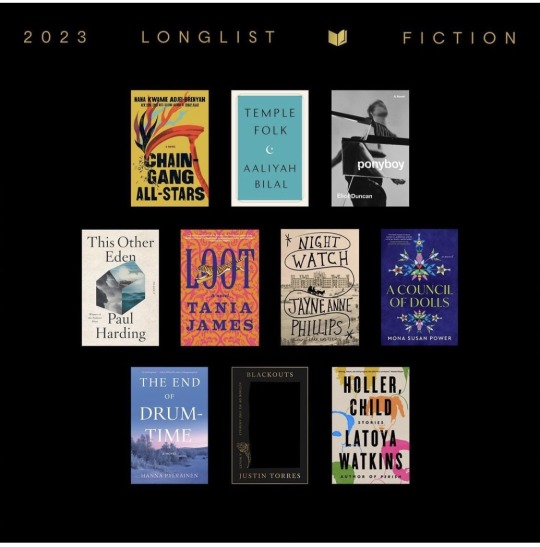
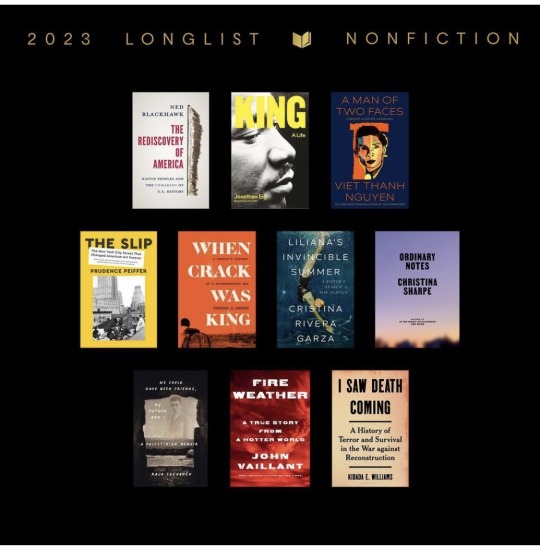
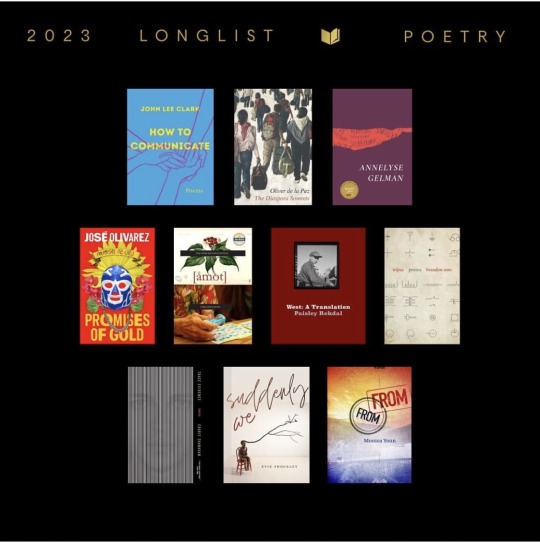
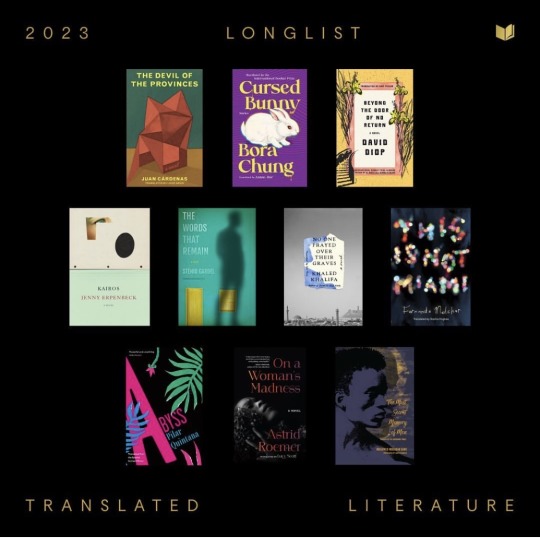

4 notes
·
View notes
Text
I just read about this reflex:
"To help protect us from the damage of really loud noises, we have something called an acoustic reflex, in which a muscle jerks the stapes away from the cochlea, essentially breaking the circuit, whenever a brutally intense sound is perceived, and it maintains that posture for some seconds afterward, which is why we are often deafened after an explosion."
Bryson, Bill. The Body: A Guide for Occupants (p. 108). Knopf Doubleday Publishing Group. Kindle Edition.
Considering how sensitive cat hearing is, ouch.
Did not see a single one of those coming
74K notes
·
View notes
Text
The Dictionary People: The Unsung Heroes Who Created the Oxford English Dictionary
by Sarah Ogilvie
Publisher: Knopf (October 17, 2023)
Publication date: October 17, 2023
Print length : 371 pages
Rating a 5 stars out of 5
"The Oxford English Dictionary is one of mankind’s greatest achievements, and yet, curiously, its creators are almost never considered. Who were the people behind this unprecedented book? As Sarah Ogilvie reveals, they include three murderers, a collector of pornography, the daughter of Karl Marx, a president of Yale, a radical suffragette, a vicar who was later found dead in the cupboard of his chapel, an inventor of the first American subway, a female anti-slavery activist in Philadelphia . . . and thousands of others."
Geeks, nerds, and lovers of words rejoice. The Dictionary People is an amazing work chocked full of richly detailed biographical backgrounds, tidbits, and juicy gossip about the people who contributed to the epic Oxford English Dictionary. Fair warning that it can also read like a textbook. The setup is a grouping by alphabet letters. A for archaeologist to Z for Zealots, cute play on a dictionary layout.
The author refers to them as unsung heroes and I whole heartedly agree. Learning the dedication, time, energy, and willingness to work (free) for the love of reading and words was an amazing journey. There was a core group of paid administrators, editors and assistants but the majority of references were submitted by readers. I never thought about where a dictionary came from, its origins or how the idea came about. So many people, so many years, so much influence on modern life. Correct spelling, pronouncement, multiple meanings, all come from dictionaries. They've been around in one form or another for centuries although usually regionally orientated or dedicated to one language. There are books solely about pronouncing words. All this knowledge came together to create an amazing work of art.
The Oxford dictionary was in a race to beat others to the finish line, other countries were working on their own versions most notably Noah Webster in America. He decided how Americans would spell and it's sure different from the Brits. He believed that fewer letters were better and more didn't necessarily contribute to the end result. I thoroughly enjoyed myself and had a hard time putting down the book.

0 notes